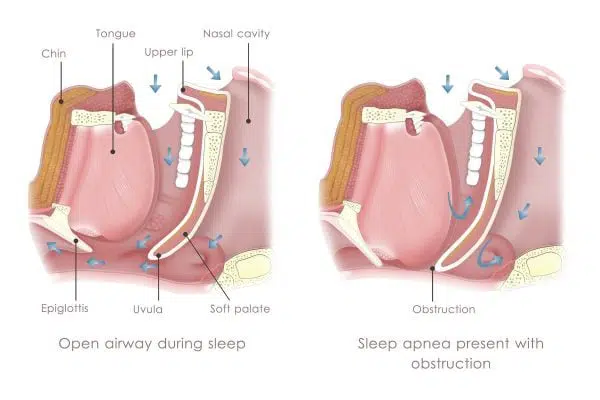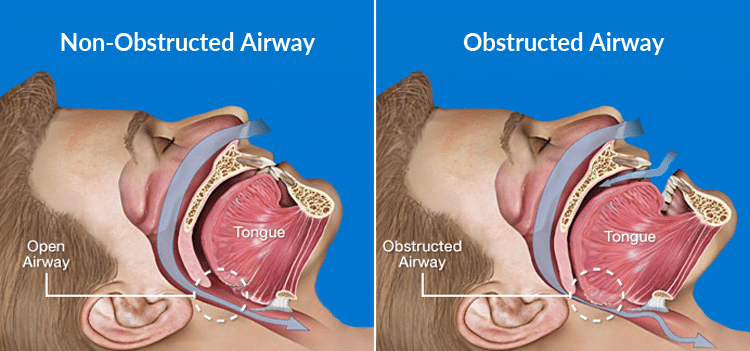What is Nightlase, the laser snoring treatment?
Nightlase is a non-invasive laser therapy that expands a patient’s airway, improving sleep and snoring reduction. The therapy results in the contraction of the soft tissues at the back of the throat and airway, therefore widening the airway. Nightlase therapy comprises three to four sessions spread over nine to twelve weeks. Each visit lasts around 45 minutes. Snoring improvement often lasts up to a year, and treatments may be repeated as necessary.

Am I a Nightlase Snoring Treatment Candidate?
You are likely a candidate for Nightlase snoring treatment if you snore or have mild to severe sleep apnea.
Is snoring more than a noise?
Snoring could be a symptom of a more severe health problem, such as sleep apnea. Snoring occurs when a partial airway obstruction results in the snoring sound, while sleep apnea is defined as a total airway obstruction lasting at least 10 seconds. When a person has a sleep apnea incident, they stop breathing for ten seconds or longer.
Laser Snoring Treatment


This laser snoring treatment, called NightLase, uses a safe medical-grade laser to gently heat the collagen in the throat. After three treatments over six weeks, the tissue in the throat tightens. The laser first warms the tissue. Then the laser light strengthens the tissues. This causes the tissue to tighten up o t of the way of the breathing passage. Snoring is reduced, as well as sleep apnea. Because the process is pre-programmed into the laser, there’s no chance of overuse or damage.
This helps to eliminate snoring and sleep apnea. Getting a good night’s sleep is about not being interrupted by apnea. Apnea causes the sleeper to startle awake since they suddenly can’t breathe. This new snoring treatment, laser snoring treatment, provides patients with a comfortable, simple, non-surgical procedure. The effect lasts for up to a full year.